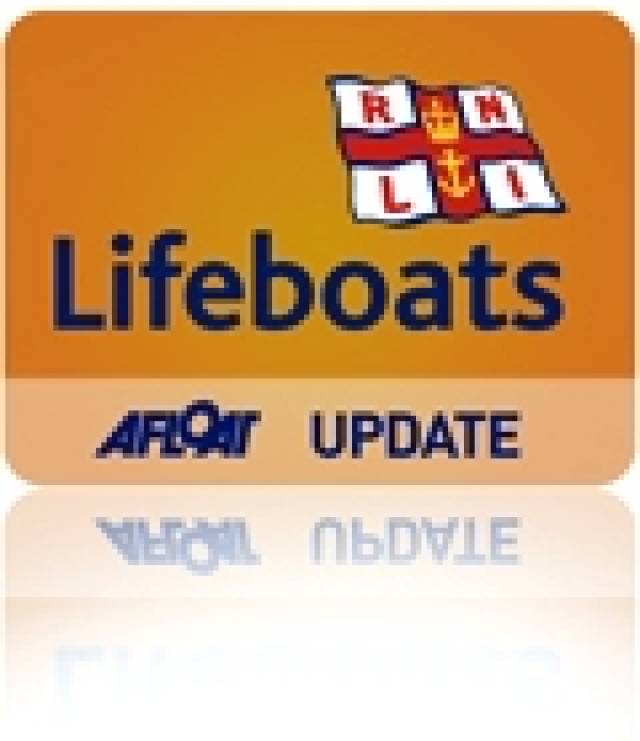#RNLI - Three members of Lough Swilly RNLI recently made a very special trip to check on the progress of the station’s new state-of-the-art Shannon-class lifeboat.
The group visited Lymington in England, where the finishing touches are being put to their new €2.4 million lifeboat in time for its arrival into Inishowen next year.
Lough Swilly lifeboat operations manager John McCarter, coxswain Mark Barnett and mechanic Gregory McDaid were invited by the RNLI to see their new Shannon under construction via a full guided tour by RNLI fleet staff coxswain Martin Phillips.
The new all-weather lifeboat was at the ‘topping out’ stage, where the superstructure was about to be joined with the hull and the lifeboat would then take on the shape that the public recognise today.
All systems in the hull were fitted out and the lifeboat had just received its first distinctive coat of the orange paint that is present on all lifeboats.
Commenting on the visit, McCarter said: "It was incredible to see our lifeboat taking shape in the boatyard. It was completely exposed and you could see up close the minute detail that goes into every single part of the lifeboat.
"In just a few short months that lifeboat will be steaming into the Inishowen peninsula to take up residence here and give support and assistance to many people over its lifetime."
Barnett added: "This is a very special occasion in the life of our station and I am delighted with how our new lifeboat is coming along. We were shown around the boatyard and saw the Shannon-class lifeboats that were being built for other stations in the RNLI.
"However, ours will be the first to go on service in Ireland and for that reason it is extra special.
"I was standing in the bare wheelhouse of our new lifeboat, knowing that soon it would be fitted out with the equipment and seats that will give our volunteer lifeboat crew the tools they need to carry out their roles in all weathers off our coastline."
Adding to the praise for the new lifeboat, Gregory McDaid said: "I have a different view point from the other crew. My role is to make sure that the lifeboat can safely bring the lifeboat crew out in all weathers at any hour, handle anything that is thrown at it and of course bring everyone home safely. With this in mind I was very keen to see the engines on the other Shannons that were in their final stages of construction.
"This lifeboat is the first modern generation all weather lifeboat to run on water jets rather than propellers. This allows the vessel to operate in shallow waters and to be intentionally beached. The two 650hp engines help the lifeboat achieve 25 knots and each one has its own 1,370 litre fuel tank. That engine room will be my new home soon."
Excitement has been mounting locally since the RNLI announced in September that the Lough Swilly lifeboat station in Buncrana, Co Donegal was to be the first in Ireland to receive the new Shannon class lifeboat.
The Shannon is the first class of lifeboat to be named after an Irish river, recognition by the charity of the role of Irish lifeboat crews and volunteers throughout the 190 year history of the RNLI.
The new lifeboat is on course to arrive into Buncrana next April with a vigorous training schedule for the lifeboat crew to commence in January.































































